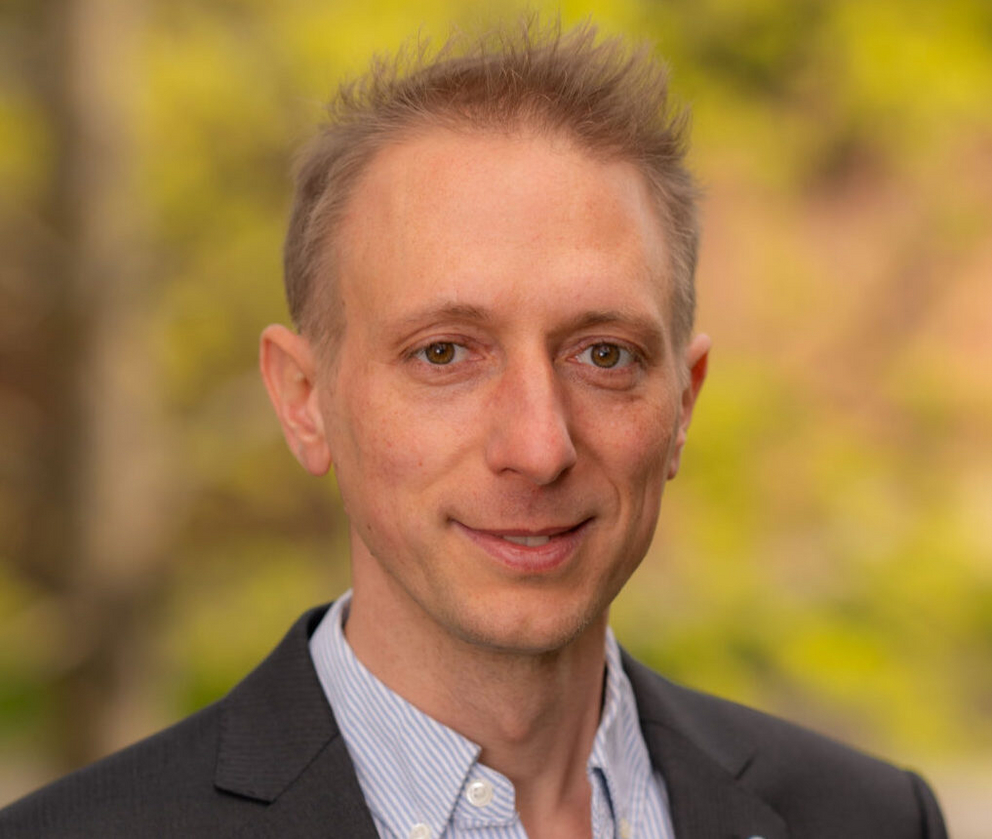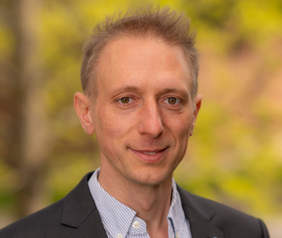Prof. Dr. Simon Elsässer took on the professorship for synthetic biology at the University of Freiburg on 1 October 2025. The biochemist is one of the world’s leading scientists in the technological and methodological further development of epigenetics and synthetic biology. The professorship will be supported by the foundation Carl-Zeiss-Stiftung with a total of 4.8 euros over ten years and is located at the Faculty of Biology. Moreover, it is a core professorship in the Cluster of Excellence CIBSS – Centre for Integrative Biological Signalling Studies at the University of Freiburg. His appointment will therefore help to further expand and strengthen the entire 'Signals of Life' research focus at the University of Freiburg. "The appointment of Simon Elsässer strengthens CIBSS both in terms of content and strategically," says Prof. Dr. Sonja-Verena Albers, spokesperson for CIBSS and Dean of the Faculty of Biology at the University of Freiburg. "His research on epigenetic signals and their adaptation to environmental factors combines basic research with approaches to personalised medicine – an important boost for the second funding phase of CIBSS."


Simon Elsässer is the new Endowed Professor for Synthetic Biology at the University of Freiburg
Elsässer strengthens the ‘Signals of Life’ research focus as well as the CIBSS Cluster of Excellence at the University of Freiburg. The foundation Carl-Zeiss-Stiftung is providing the professorship with a total of 4.8 million euros in funding over ten years. The funded project will shed light on epigenetic mechanisms in humans.

Elsässer is one of the world’s leading scientists in the technological and methodological development of epigenetics and synthetic biology. Photo: Ulf Sirbon
Interactions between the epigenome and the environment
Our genes influence our health, but they explain only a part of the risk of diseases like diabetes, cardiovascular diseases, or cancer. This is because our DNA does not encode a fixed programme: The question of when and where which genes are active in our body is governed by the epigenome. It contains chemical modifications like DNA methylation and diverse histone modifications, which do not change the genetic sequence but have a large influence on genetic activity.
In his research, Elsässer is studying how cells in our body interpret external signals and stored epigenetic characteristics in order to control their function. “The particularly fascinating and important thing about the epigenome is that it is fundamentally shaped by one’s individual life story, such as by environmental influences, diet, lifestyle, and health record”, says Elsässer.

Prof. Dr. Simon Elsässer
Endowed Professor for Synthetic Biology, University of Freiburg
“The particularly fascinating and important thing about the epigenome is that it is fundamentally shaped by one’s individual life story, such as by environmental influences, diet, lifestyle, and health record”
Knowledge about lifestyle, diseases, and therapies
To get to the bottom of the human epigenome, Elsässer is developing non-invasive methods that provide detailed insights into epigenetic regulation in the organism. The basis for this is millions of short DNA fragments released from human tissues into the blood, still carrying their original epigenetic marks.
Elässer reads these fragments with the help of modern sequencing methods, allowing him, for example, to detect changes in the epigenome depending on lifestyle, age, health record, and medical interventions. “Our hope is that such knowledge will help us to identify pathological changes early on and counteract them with new therapeutic approaches”, says Elsässer.
Elsässer is also receiving funding for his research work as Alexander von Humboldt Professor at the University of Freiburg.
About Simon Elsässer
Simon Elsässer was most recently an associate professor at the Karolinska Institutet in Solna, Sweden, where he took up his first group leader position in 2015 as part of the Science for Life Laboratory Fellows Programme. He completed his PhD at Rockefeller University in New York, USA, between 2007 and 2011, followed by a postdoctoral fellowship in Cambridge, United Kingdom. He has been awarded numerous prizes and scholarships, including the Swedish Svedberg Prize, the College for Life Science Fellowship from the Wissenschaftskolleg zu Berlin, the Wallenberg Academy Fellowship and the Future Research Leader Fellowship from the Swedish Foundation for Strategic Research. He has also successfully secured an ERC Starting Grant and an ERC Consolidator Grant.
About the Carl-Zeiss-Stiftung
The Carl-Zeiss-Stiftung has set itself the goal of creating scope for scientific breakthroughs. As a partner of excellent scientific work, it supports both basic research and application-oriented research and teaching in the STEM disciplines (science, technology, engineering, and mathematics). Founded in 1889 by the physicist and mathematician Ernst Abbe, the Carl-Zeiss-Stiftung is one of the oldest and largest private science-funding foundations in Germany. It is the sole owner of Carl Zeiss AG and SCHOTT AG. Its projects are financed from the dividends of the two foundation companies.
CIBSS profile of Prof. Dr. Simon Elsässer
Press release University of Freiburg



